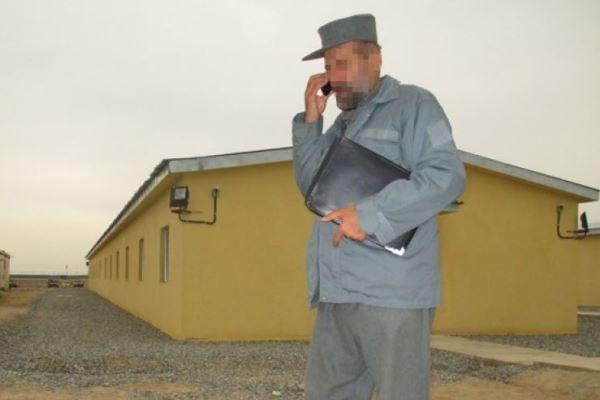It should have been a proud and ceremonial moment: The commander of the Afghan national police force was to officially take possession of the new barracks built with U.S. tax dollars for the men who would ensure the nation's security and future. Instead, the 2012 incident was just another chapter in the long tale of American tax dollars wasted in the war-ravaged country.
After touring the $8 million building, located about 22 miles north of the city of Kunduz, the Afghan commander refused to take the keys from an Afghan army colonel involved in oversight of the project, making clear he did not think the building was was fit to accommodate his men. Built by local contractors and laborers under the eye of the Army Corps of Engineers, the building lacked working plumbing, heat and air conditioning. Even in an impoverished nation decimated by a decade of war, it was not up to code.
“The colonel tried to hand off the keys to my counterpart who refused knowing that if he took physical possession that it was the same as signing for the buildings in their culture,” a U.S. Army officer who was present for the aborted exchange and asked not to be identified told FoxNews.com.
The officer said the facility for the Afghan national Police’s 3rd Kandak, or battalion, was one of several such instances he witnessed firsthand of shoddy construction, poor management and waste of American taxpayers’ money during the 13-year war in which the U.S. spent more than $1 trillion.
The claims of the officer, who is still on active duty, jibe with a raft of reports from the Special Inspector General for Afghanistan Reconstruction (SIGAR), who has uncovered hundreds of millions of dollars in waste, fraud and abuse. Earlier this month, the government watchdog revealed that a $500,000 police training center had started to “melt” just four months after it was built in 2012.
The dry firing range (DFR) was designed to look like a typical Afghan village for training exercises. It was built under the supervision of a contracting center run by U.S. Central Command (CENTCOM) which over saw the Afghan contractor, Qesmatullah Nasrat Construction (QNCC).
The report stated that the contractor failed to follow contractual requirements and used shoddy materials that caused water to become trapped between the walls, eventually causing the structure to disintegrate and making it look as if it was “melting” away.
"This project was an utter failure and embarrassment to the U.S. government and the American taxpayer still doesn’t know why they paid for it,” Inspector General John Sopko said in a statement to FoxNews.com at the time. “As long as federal agencies fail to take oversight seriously, these sorts of projects and taxpayer dollars will continue to melt away."
In the case of the police barracks, the U.S. officer said he sympathized with the Afghan police commander, noting the facility were not fit for occupation.
“There was never heat or air conditioning spec’d for them," he said. "The commander would not sign for them. He wanted heat and air installed. The contract never had it in so there were no additional funds for heat and air.
The plumbing was a mess, he said.
“We heard water running in the one building,” he said. “We found out after getting inside, the pipes had frozen. We inspected and saw cracked pipes from freezing, fixtures broken or not even connected, [pipe] unions not connected.
“Any plumber who sets up a water system pressure checks before charging with water," he said. "This was not done; otherwise it would have failed because pipes weren’t even connected. If this was inspected by the U.S. inspectors, they would have seen the unions not threaded together and other fixtures not connected.”
It was after that inspection that officials on the ground contacted headquarters to ask what went wrong, who was to blame and how it could be fixed.
“I was told by the U.S. Civilian engineer that it was inspected and that it was the Afghans fault, that they let the pipes freeze,” the official said.
A spokesman from the office if the Special Inspector General for Afghanistan Reconstruction (SIGAR) tells FoxNews.com that they were not aware of any issue with the facility. It was not immediately clear if an investigation would be launched.
The officer involved with the inspection process told FoxNews.com that many of the construction projects in the region were done at inflated costs.
"The costs associated with construction were beyond the normal costs of Afghan construction,” he said. "I often asked my interpreters about this and they said it was true. That the Americans pay way too much, that all of the government officials in the area get their cut."





























